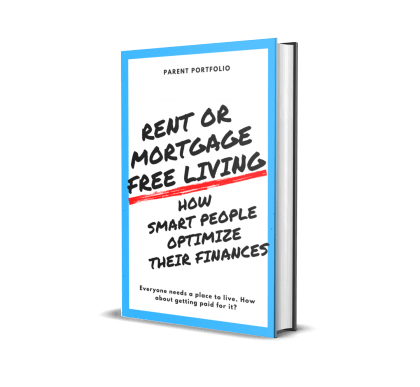How To Survive Working With A Chronic Disease

Holding on to a job in today’s economy is hard enough without having to deal with an illness. But when that illness becomes “chronic” after a year or more, you start to wonder how you can continue working with something that causes so much suffering.
I became chronically sick with Lyme Disease six months after starting my job but continued to work four more years until I was no longer able to. The disease progressively got worse to the point where I finally had to stop working and apply for disability.
So is this the route you should take? Well, ultimately only you and your doctor can make that decision. But in this blog post, I’ll describe what it means to go on disability AND what to do should you decide to continue working.
SHOULD YOU APPLY FOR DISABILITY?
Perhaps you’ve already reached a point where you feel you can no longer work because the pain and suffering of your illness are too much to bear. It’s usually at this point when you start thinking about applying for disability benefits. Now, you’d think going on disability is your best option but there’s more to the story…
Sure, on one hand, you’d have all the time to concentrate on your health by leaving the stress-filled rat race of the working world behind. But on the other hand, you’d likely introduce new stresses to your life, namely the lack of enough income and possibly confronting isolation and depression — all too common issues especially among homebound individuals. That’s why applying for disability isn’t always the best choice when your chronic disease is still manageable with the right medication.
Having said that, if your disability directly affects your job performance and continues to get worse, you may have no other choice than to apply for disability, that is, if your employer doesn’t bring it up first. Keep in mind that while the Americans with Disabilities Act [source] protects you from workplace discrimination and harassment, your employer isn’t liable simply because you can no longer do the job.
Assuming your disability doesn’t directly affect your job performance and you decide to carry on working instead, you’re left with two choices:
- Continue to work at your current place of employment
- Make a career switch more accommodating to your condition
Let’s look at each of these options…
SHOULD YOU STAY WITH YOUR CURRENT EMPLOYER?
Whether to stay at your current job boils down to two deciding factors…
First, assess your current day-to-day working environment. Are your co-workers warm, helpful and accepting of your condition or are they stand-offish, neglectful and openly hostile? It goes without saying that working in an environment where you know you’re not wanted is reason enough to leave.
Second, gauge the extent to which your employer will accommodate you. According to the Americans with Disabilities Act, your employer is required to make reasonable adjustments so long as your illness meets the definition of a disability. But beyond legal statutes, can you speak to your employer openly about your situation and expect to receive a receptive ear? If not, you may want to think twice about staying there even if the law’s on your side.
Assuming you have an understanding boss, here are some topics to discuss regarding your situation…
Work Location
Talk about the prospect of telecommuting with your employer since it’s probably the easiest solution for both parties. Think about it, you’d be able to work from home, allowing you to create an environment conducive to optimal health and your employer wouldn’t have to reconfigure their environment to accommodate you.
Workplace Changes
Depending on your job, working from home isn’t always an option in which case it’s time to discuss how to make the workplace environment more accommodating to you. Here are a few topics to raise in your meeting…
- Permission to work flexible hours or part-time hours
- Permission to take more breaks
- Permission to leave for regular doctor’s appointments (with medical certificates)
- Permission to recruit co-workers for extra help to meet deadlines when you’re out of the office (which you reciprocate at a later time)
- Permission to move to another part of the office (where foot traffic and noise are less)
- Request for special equipment (e.g., ergonomic chair, headset telephone, speech recognition software, etc.)
- Request for better accessibility (for wheelchairs, etc.)
Whatever you do, don’t make demands otherwise you’ll risk souring your relationship. Keep the discussion serious, yet cordial.
Many employers also take part in disease management programs which help people with chronic illnesses so that’s something to ask during your meeting too.
Redeployment
Consider asking your employer for a less demanding job if your current one is too stressful. While there may not be an immediate opening, you never know what can happen down the road so it’s worthwhile bringing up.
SHOULD YOU SWITCH YOUR CAREER?
If your employer won’t agree to any of your requests, it may be time to resign. But finding a similar job position that meets all your demands will be difficult. That’s why you may want to consider choosing a new career around something you enjoy and which gives you more time to concentrate on your health. If you’re not sure which path to take, think about volunteering to get some ideas for possible careers.
A word of advice though…when applying for a new job, DON’T disclose your illness on your resume and/or cover letter because it will end up in the trash. The time to bring up your illness (if at all) is during the interview at which point assure the interviewer that you have it under control and that you’re confident you can do the job.
THINGS YOU CAN DO TO COPE AT WORK
Even if your employer accommodates your requests or even if you switch to a new career, you’re still going to have to become more adept at coping at the workplace. So, here are a few suggestions that helped me when I still had a job…
- Find a place to temporarily escape to recoup and collect yourself (e.g., bathroom, stairway, etc.)
- Get up frequently to get your body moving
- Wear headphones even when not using them as it’ll discourage co-workers from talking to you (sneaky, I know!)
- Drink plenty of water to help lessen fatigue and increase concentration
- Maintain a healthy diet (sometimes challenging especially when your office orders pizza on Fridays!)
FINAL THOUGHTS
Working with a chronic disease is often challenging even under the best working conditions and that’s why I recommend striking out on your own if possible. Think of what your life would be like…
Never having to contend with brutal commutes that drain your energy before your day even starts…
Never having to force yourself to put on a brave face throughout the day…
Never having to feel uncomfortable whenever leaving your workplace to visit your doctors…
Never having to feel ashamed for being unable to meet your work commitments…
Never having to explain the reasons why you can’t intermingle with co-workers…
Plus, many more “nevers”!
By starting your own home-based business, you’ll feel more at ease and more in control of your life.
Find out how below…
NOW IT’S YOUR TURN!
So, what challenges have you had working with a chronic illness? Leave your comments below!








